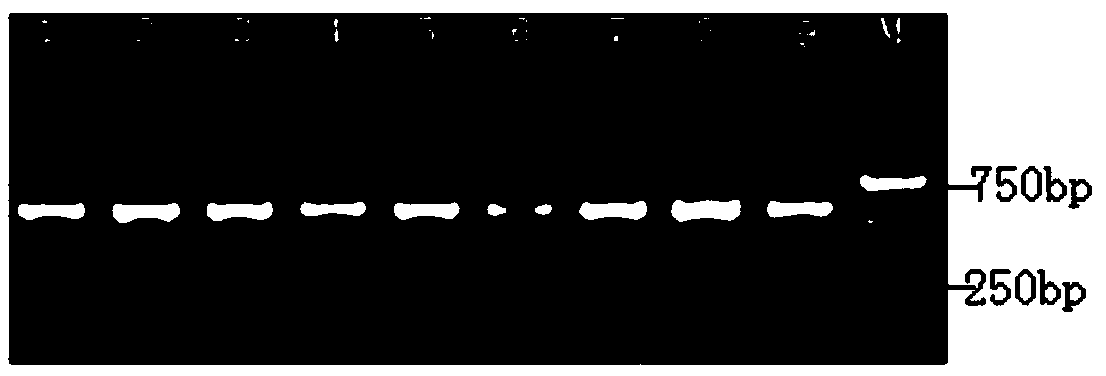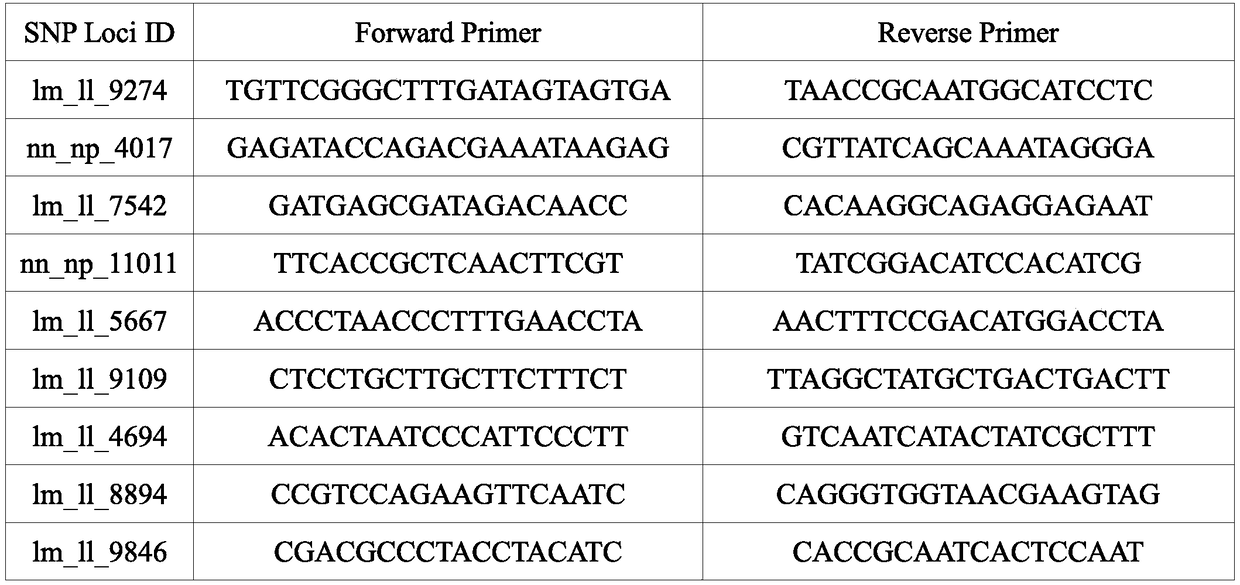Method for screening SNP markers of Liriodendron genome
A screening method and technology of Liriodendron, applied in the field of genome, can solve the problem of lack of molecular markers, and achieve the effect of reliable quality
- Summary
- Abstract
- Description
- Claims
- Application Information
AI Technical Summary
Problems solved by technology
Method used
Image
Examples
Embodiment 1
[0026] A screening method for the SNP marker of Liriodendron tulipifera genome, the specific steps are as follows:
[0027] 1. Materials
[0028] The mating combination of hybrid parents is Liriodendron tulipifera ‘NK’ × Liriodendron chinense ‘LS’, referred to as ‘NK’בLS’, with Liriodendron tulipifera ‘NK’ as the female parent and Liriodendron chinense ‘LS’ as the male parent. The female parent 'NK' is a good provenance in the eastern coast of North America, and the male parent 'LS1' is a provenance in the southeastern inland of China. At the end of April and the beginning of May 2011, the Xiashu Forest Farm of Nanjing Forestry University carried out artificial cross-pollination of Liriodendron tulipifera. 2-3 days after the completion of pollination, when the ovary expands, remove the paper bag. After the aggregated fruit develops and matures in about 140-160 days, harvest it manually. After it is naturally air-dried, remove the seeds of the wing and place it in a cold stor...
PUM
 Login to View More
Login to View More Abstract
Description
Claims
Application Information
 Login to View More
Login to View More - R&D
- Intellectual Property
- Life Sciences
- Materials
- Tech Scout
- Unparalleled Data Quality
- Higher Quality Content
- 60% Fewer Hallucinations
Browse by: Latest US Patents, China's latest patents, Technical Efficacy Thesaurus, Application Domain, Technology Topic, Popular Technical Reports.
© 2025 PatSnap. All rights reserved.Legal|Privacy policy|Modern Slavery Act Transparency Statement|Sitemap|About US| Contact US: help@patsnap.com



